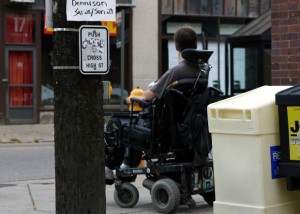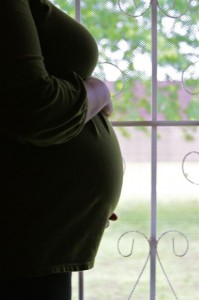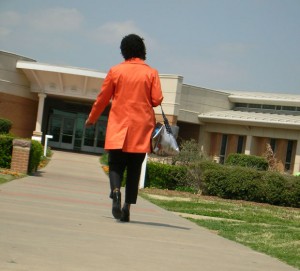Articles Tagged with California discrimination lawyer
Former Disney Employee Sues for Discrimination
Our employment lawyers know how important it is for companies to have both strong anti-discrimination policies  and enforcement of those policies. Not only are acts of discrimination against protected groups illegal, but they are also just plain bad business. Everyone wants to feel safe going to work, and no one wants to feel like they have to choose between their income and the values they hold sacred.
and enforcement of those policies. Not only are acts of discrimination against protected groups illegal, but they are also just plain bad business. Everyone wants to feel safe going to work, and no one wants to feel like they have to choose between their income and the values they hold sacred.
Disney is one company under scrutiny after a former employee of Walt Disney World in Florida filed a lawsuit (Sebti v. Walt Disney Parks and Resorts U.S. Inc.) in the U.S. District Court for the Middle District of Florida alleging he was discriminated against for his nationality.
Term “Alien” to be removed from California Labor Code
According to a recent news article from the USC Guardian, State Senator Tony Mendoza introduced Senate Bill SB 432 earlier this year and the senate has just approved his bill. SB 432 was drafted to the remove the term “alien” from the California Labor Code.
 In the existing form of the state labor code, the term alien is used to denote any person who is not a citizen of the United States or a United States national. The term alien to mean a person who is not a US citizen has long history of use in the legal documents of the United States and in common usage. With respect to the legal documents, the Alien and Sedition Acts of 1798 can be used as an example. This act was used to grant authority to the federal government to deport any non-citizens it determined were dangerous to the nation. Other statutes use the terms illegal and unauthorized alien.
In the existing form of the state labor code, the term alien is used to denote any person who is not a citizen of the United States or a United States national. The term alien to mean a person who is not a US citizen has long history of use in the legal documents of the United States and in common usage. With respect to the legal documents, the Alien and Sedition Acts of 1798 can be used as an example. This act was used to grant authority to the federal government to deport any non-citizens it determined were dangerous to the nation. Other statutes use the terms illegal and unauthorized alien.
In speaking about why he felt the need to create this piece of legislation, Mendoza stated he feels the term alien holds a negative connotation, and there is no appropriate place for it in modern laws and statutes. Mendoza further argues the term alien has been a derogatory term in common usage, especially in the context of speaking about illegal aliens. Continue Reading ›
Disability Discrimination Lawsuits Proliferate Nationwide
A number of high-profile disability discrimination lawsuits across the country are an important reminder of the fact that although we have made a great deal of progress in this arena, we still have a far way to go.
Here in California, the Fair Employment Housing Act, enforced by the state’s Department of Fair Employment and Housing, bars employment discrimination on the basis of a person’s disability or even a perceived disability.
There are also requirements that hold employers to an expectation that they will reasonably act to accommodate workers with physical or mental disabilities and illnesses such as HIV/AIDS and cancer. In those cases where an employer fails to do this, the burden of proof is on the employer to show why doing so would cause an undue hardship.
Age Discrimination Case Heard by U.S. Supreme Court
The U.S. Supreme Court recently heard oral arguments in an age discrimination lawsuit brought by a former district attorney from Illinois. 
The high court was asked to determine whether the Age Discrimination Employment Act is the only remedy through which individuals may seek recourse for discrimination on the basis of age.
However, our Costa Mesa age discrimination attorneys understand that the case of Madigan v. Levin may not even get that far, as the justices appeared to focus less on the merits of the case and more on whether it was one they should be deciding at all.
Pregnancy Discrimination Act of 1978 Turns 35
The federal law that made it illegal for employers to discriminate against pregnant women – or those who had recently been or might become pregnant – has just turned 35. 
While it may be difficult for some in the younger generations to fathom a time when a woman’s reproductive status was ever an issue with employers, there are still many workplaces that apparently have yet to receive the memo.
Pregnancy discrimination attorneys in Costa Mesa know that pregnant workers still confront discrimination even now.
California Discrimination Lawsuits Impacted by Wal-Mart v. Dukes Decision
It’s been little more than two years since the U.S. Supreme Court shot down a massive class action gender discrimination lawsuit on behalf of thousands of women who worked for retail giant Wal-Mart. 
Since then, the Wal-Mart v. Dukes decision has been cited more than 1,200 times by state and federal courts handling similar types of complaints, some against retailers, such as Family Dollar Stores, others against government contractors, such as Lockheed Martin Corp. and even in the publishing industry, with one large case involving Hearst Corp.
It’s impossible to deny the impact this pro-business decision had on discrimination litigation. However, where it has primarily hit the hardest has been with regard to larger, class-action cases. That’s because the primary issue in the Dukes decision was not whether Wal-Mart had discriminated against women, as alleged. Rather, the court was charged with determining whether members of the class had enough in common to allow the case to move forward.
California Religious Discrimination Case Won By Muslim Plaintiff
A Muslim woman’s right to don her religious hair covering at work trumps a clothing store company’s effort to maintain an “All-American” image, a federal court in northern California recently ruled. 
In Khan v. Abercrombie & Fitch Stores, Inc., Case No. 11-cv-03162-YGR, U.S. District Court of Northern California, a federal judge granted the plaintiff’s motion for a partial summary judgment in the case wherein religious discrimination had been alleged.
The plaintiff had been represented by the U.S. Equal Employment Opportunity Commission. A separate hearing has been set to determine the exact amount of monetary damages to be awarded.
FMLA Cited in Wrongful Termination Employment Lawsuit
A woman has filed a labor lawsuit stating that her employer wrongfully fired her rather than make reasonable accommodations for her doctor-verified illness.
Our Costa Mesa employment lawyers know that this case centers on a federal law known as the Family and Medical Leave Act. The law has strict applications, but it is intended to protect the jobs of those who need leave for specified medical emergencies pertaining to either the employee or the employee’s family.
Workers who are approved of FMLA are entitled to a total of 12 work weeks’ worth of leave over the course of one year under the following conditions:
California Temporary Worker Rights, Part 2
In this second entry of our two-part series on the rapid proliferation of temporary workers in California, our Costa Mesa employment lawyers continue to explore some of the vulnerabilities of these employees and the extent of the power they do hold. 
We’ve been closely following the ProPublica/TIME Magazine series on temporary workers.
While the number of temporary workers throughout the country continues to grow, the number of individuals who will secure full-time employment as a result of these positions is low – about 30 percent. In the meantime, most will earn less than $25,000, some taking in less than half of minimum wage once various fees are factored.
 Orange County Employment Lawyers Blog
Orange County Employment Lawyers Blog


